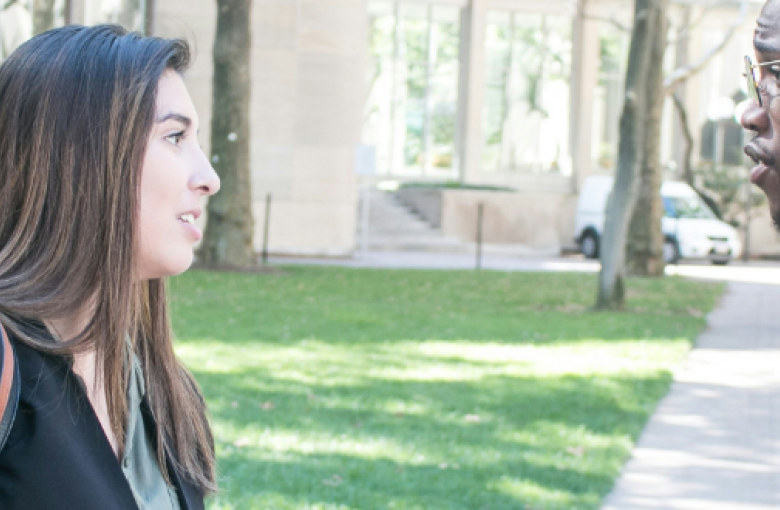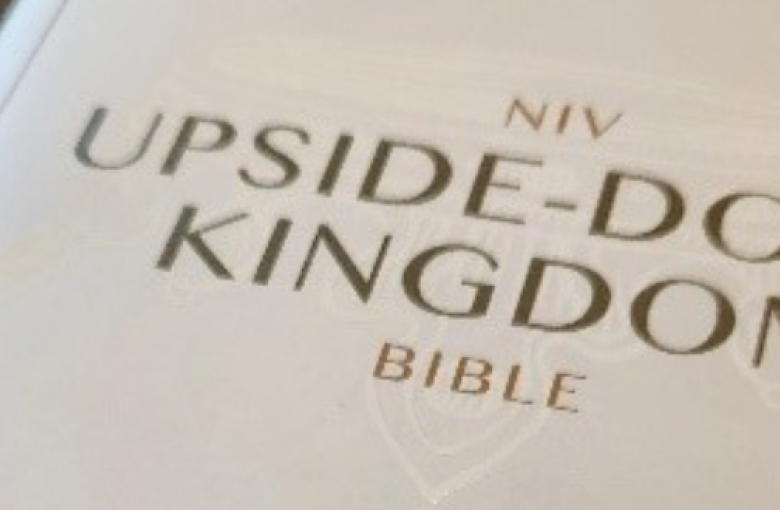Laura and Mark share, in this article, their experiences of speaking regularly on behalf of TFT.
In Luke 15 we read the parable of the lost sheep and, in many ways, I think this provides a helpful framework for understanding the way western culture encourages the emerging generation to live. We read the story of a shepherd and His flock; the sheep live within the boundaries and safety of the fence; the shepherd tends to and cares for His sheep; the sheep hear His voice and they follow, trusting His leadership and care.
It’s easy to feel churlish about study Bibles. There’s one for every lifestyle and perhaps every season of life, and the differences between them are seldom obvious. For me personally, the idea of purchasing a whole new Bible just to get the 'study bits' offered in its margins is a little ludicrous. But I’ve made an exception for the NIV Upside-Down Kingdom Bible, because it has several features that are of great interest to me as a same-sex attracted person with an admittedly counter-cultural worldview.
Is the risk worth it?
I hope this article encourages those who have been hurt in past friendships and relationships, to stay in community with others. I suggest that committing is worth it, as we take the risk of being open and vulnerable with others.
Emotional dependency occurs when your emotional well-being becomes overly dependent on another person. Your emotions fluctuate from extreme highs to extreme lows depending on how they treat you or how you perceive them treating you. Emotional dependency expects more from a person than that person can give. It is not a unique experience for same-sex attracted individuals. Anyone can become emotionally dependent on another person.
In the spring of 2020, as a middle-aged single man living alone in London, I was invited by a young family in my church to "bubble” with them for the foreseeable future, while Covid restrictions began to be implemented.
Throughout the various lockdowns, I spent all day every Sunday with them and one evening midweek too. I’d been feeling emotionally low for the previous year, so I don’t think I’m being overly dramatic if I say that it probably saved my life.
A little over a year ago, they came back from a holiday in Australia with a clear sense that God was calling them to help plant a church in Sydney.
When I picked up this short booklet, my interest was piqued. However, I was also somewhat sceptical of how the subject of polyamory or consensual non-monogamy (where “all parties agree that the relationship is not exclusive”) might impact me, my church and the ministry of TFT. By the time I’d finished reading the booklet, it had certainly made me sit up and take note.
One thing that compounds any pain is the feeling that one is alone, abandoned, that there is no one else who understands. This sense of isolation and being unseen, cut off, is the very essence of what it means to feel lonely. However, one of things that has helped me personally to get up off the floor of my deepest moments of loneliness is the reminder that I am not the only person who has felt alone.
Friendships are an essential part of our daily Christian lives, and yet few of us have a biblical theology of friendship. This article seeks to highlight a few key biblical principles for us to live and evaluate our friendships by.









